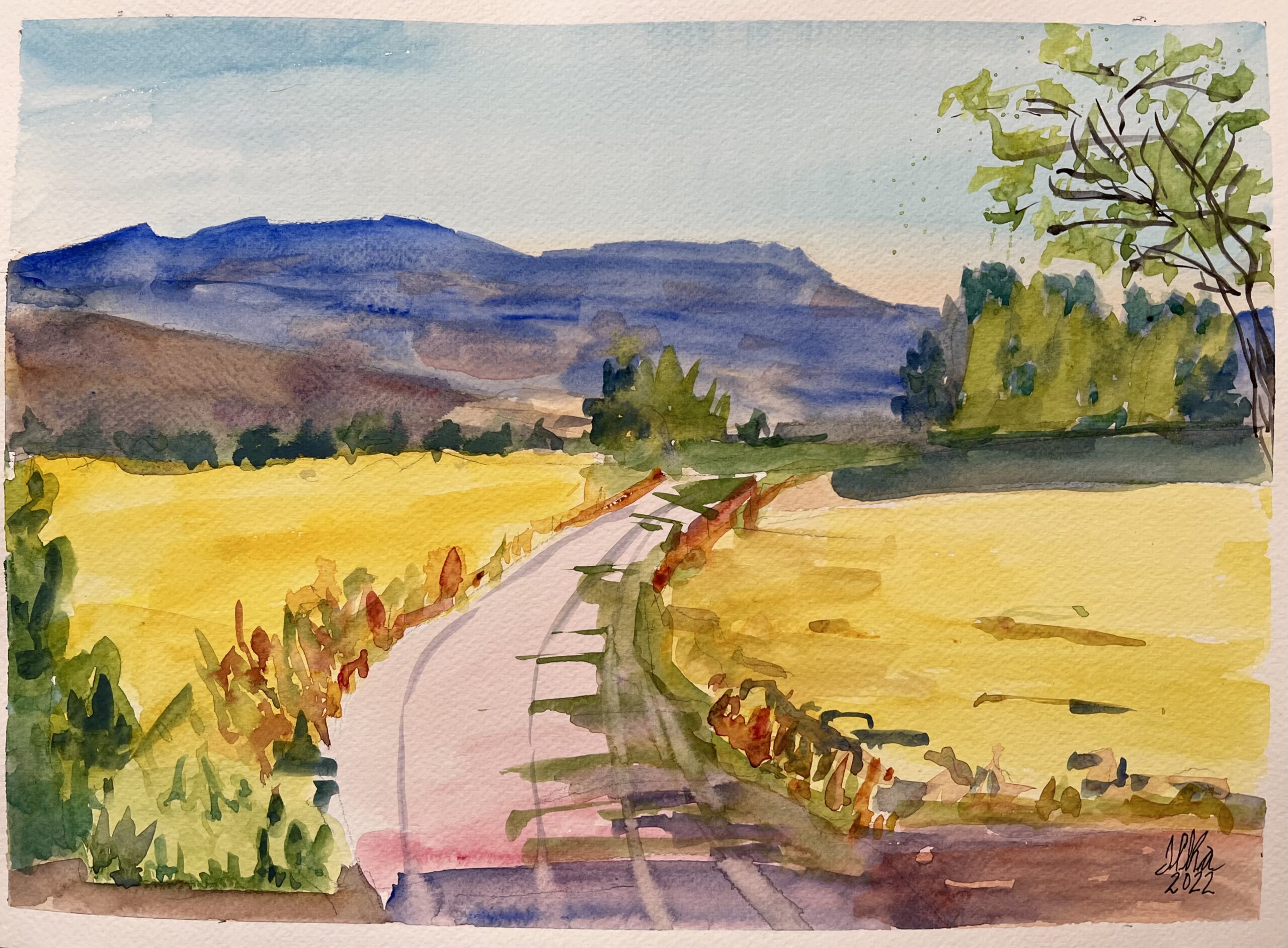Translated by Katrina Hassan
Cayetana turns on the stove and starts heating up the food she will put in containers for her lunch. It is four in the morning. She fills up five 1.5 liter plastic bottles of water that she will drink during her working day. She puts tortillas in her lunchbox that have been heated, wrapped in aluminium and then enclosed in plastic bags. She checks everything is there, the container of rice, beans, scrambled eggs and the tortillas. She puts her knee pads on, double pants, double sweaters, a jacket and her Caterpillar type boots. in her backpack Cayetana has gloves, a kerchief, and a hat so she can cover her face.
She leaves the apartment she shares with eight other undocumented people. On the corner of her road, she waits for her ride from a fellow coworker. He charges her twenty dollars to take her to work. She prefers to pay than have to take a train and bus. It wastes too much time to take the train and the bus. She needs all the time she can get. She wants to build a house in her native La Palmilla, Usumatlán, Zacapa, Guatemala. This is why she works from Monday to Sunday.
Cayetana arrives at the fields at 5:30 a.m. sharp. She has been cutting radishes for twenty two years. She is on her knees all day, taking in all the daylight hours on her hunched back. Her hand and fingers are dry, cracked and yellow. It doesn’t matter how much she washes them or apply cream, to a city person, it would seem that she is unclean or not careful with her appearance. Her hands are like that thanks to the long hours she works in the fields.
She applies sunblock to her face every four hours. She fixes her kerchief and hat but the vapor from the hot earth trespasses everything. The blotches on her skin have stayed permanently. Cayetana has sharp pains in her knees and back, plus the daily overheating is all part of her daily grind. She is barely thirty nine years old but looks about twenty years older. She hasn’t been able to treat her dental problems because it is too expensive. She prefers not to take any money out of the remittances. She wants her four kids to finish university back home. To alleviate the pain, Cayetana sucks on a cotton soaked with alcohol, chews on cloves, and rinses her mouth with salt and water.
Cayetana has managed to recuperate the deeds to her parent’s house and land. They had them pawned to get a loanshark to loan them money for Cayetana to pay the coyote to take her North. Her parents were left to look after her four kids. Her parents send her care packages with ointments to alleviate her knee and back pain. It is impossible for her to go to the doctor’s. It is too much money she doesn’t have.
She dreams of the day she can go back to her native land. She will have her own house and business. The last thing she wants to do is go back to work in the fields. She worked in the melon, sweet chile, watermelon, tobacco, and Loroco fields ever since she was a kid. She hopes her return home will be different and that she has ten more years to work in fields so she can save enough money. She never wants to set foot in a furrow that is not on her own piece of land. She plans to buy herself some land so she can live out her last years enjoying the view at the bottom of the Sierra de las Minas mountains.
Those are Cayetana’s daydreams. As the hot California sun wilts the radish leaves and the earth’s vapor burns her soles, she never stops daydreaming. If she stops daydreaming and reality hits, she will be lost. She imagines the papaya trees, the cornfields, the shade under the guayacan trees, her parent’s hands, hugs from her kids, the river Motagua’s waters, the taste of rice quesadillas, her plot of land at the foot of the mountain, her house with a corridor, her hammock, and the water jug near the kitchen. Cayetana travels in time, because for her it is better to dream than to pay attention to her aches and pains, her burning fingertips, her toothache and the emptiness she feels in her heart because she didn’t see her kids grow up.
If you share this text in another website and/or social media, please cite the original source and URL: https://cronicasdeunainquilina.com
Ilka Oliva-Corado @ilkaolivacorado






